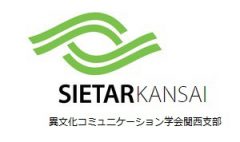Dear Sietarians,
It is a tremendous honor to become the Coordinator for SIETAR Kansai. I first joined SIETAR Japan in April 1997. At that time, I lived in Niigata prefecture, so I was unable to join the monthly meetings; however, I was very happy to attend the annual conferences in Tokyo. In 1999, I moved to Kansai where I was delighted to be able to attend the monthly meetings for SIETAR Kansai. I joined SIETAR Kansai’s coordinating committee working with Publicity and then later with the Program committee.
In 2000, several SIETAR members and I formed the first Special Interest Group (SIG)–the Contrast Culture Method (CCM). This SIG began after attending Dr. Edward Stewart’s special workshop in 1999 on the Contrast Culture Method, and the idea to form a CCM study group grew out of discussions held at the SIETAR annual retreat in the fall of the same year. Our CCM SIG is still continuing its work. We have conducted workshops for teachers, students–both Japanese and non Japanese, business people, Japanese host families for exchange students, and staff members of international exchange departments. I am happy to report that we held our first ‘international’ CCM workshops in Laos in February 2014, where we worked with Lao university students who are about to begin MA programs in Australia and with a group of university professors at the national university.
We organized the SIETAR Student Fair in 2013, which was quite successful, and we have since held it annually. Students have taken over the planning and organizing, and it is now an annual event.
I am grateful to SIETAR for enabling me to meet many interesting people and to learn from the many presentations at the chapter and conference sessions. The range of topics that are connected with intercultural communication and cultural issues is vast, and, as a result, my horizon has been greatly expanded by working in this organization.
I know that offering a diverse and interesting program is key to the success of SIETAR Kansai, so the Program committee is trying its best to arrange presenters for meetings and workshops. One of the key lessons I have learned by working in this organization, however, is that it is important to be flexible when it counts. Our organization has benefited when we have learned that a potential speaker from abroad is in the area, and so we have been able to arrange our program to take advantage of such great opportunities. Another extremely important key is collaboration. Because SIETAR Kansai is relatively small, it has been easy, but essential, to work cooperatively in order to keep our chapter running smoothly. I want to thank our chapter’s coordinating committee for their great efforts, and ask that they continue to work positively to support—and to hopefully expand—our membership.
Thank you once again to SIETAR for giving me this opportunity to work for the organization. To readers, no matter where you are, if you have suggestions or ideas for SIETAR Kansai, please be sure to contact me.
Sincerely,
Donna Fujimoto
